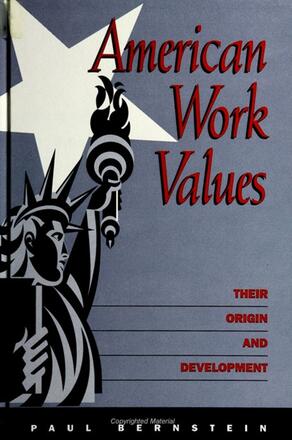
American Work Values
Their Origin and Development
Alternative formats available from:
Examines broad shifts in American work values from their Calvinist origins to present controversies involving work, welfare, and affirmative action.
Description
American Work Values: Their Origin and Development examines the broad shifts in American work values from their European origins to the present. It analyzes shifts from work as salvation to work as opportunity and alienation, and concludes with a more recent focus on self-fulfilling employment in a context of industrial downsizing.
Beginning with the Lutheran-Calvinist support of work for the glory of God, the book's focus shifts to the change in work values that occurred from early industrialization in America to the end of the Great Depression, a period characterized by both opportunity and alienation. The modern trends that followed led to the empowerment of employees even as that empowerment tested the values of such participation in a climate of rampant downsizing. The book also deals with the debates related to work and welfare that simmered during these transformations. Whether it involved policy-makers in sixteenth-century Europe or wonks in the Washington of 1996, controversy over public assistance to the deserving and undeserving poor remained a raging controversy that spilled over into the debate on affirmative action.
Paul Bernstein is Adjunct Professor of Management, former Dean of Graduate Studies, and former Dean of Liberal Arts, at the Rochester Institute of Technology. He is the co-author (with Robert Green) of History of Civilization: to 1648 and History of Civilization: since 1648. he is also the author of Career Education and the Quality of Working Life.
Reviews
"…this book provides a solid overview of the development of American work values, attitudes, and practices over several centuries … [Bernstein's] chapter on the Puritan work ethic is superior … the bibliography alone makes the book worthwhile. " — H-Net Reviews (EH. net)